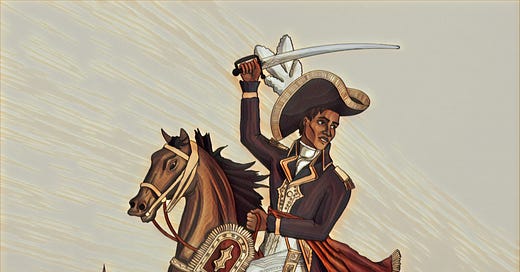If You See Something Off-Culture and Ignore It, You’ve Created a New Culture
A review of Ben Horowitz's "What You Do Is Who You Are"
Ben Horowitz's What You Do Is Who You Are revolves around signalling.
The problem is culture. The setting is in the hallways and offices of billion-dollar businesses and nascent startups. The audience is CEOs and managers. The main characters, Toussaint Louverture, Genghis Kahn, and Shaka Senghor are from different worlds. But the fundamental principle c…




